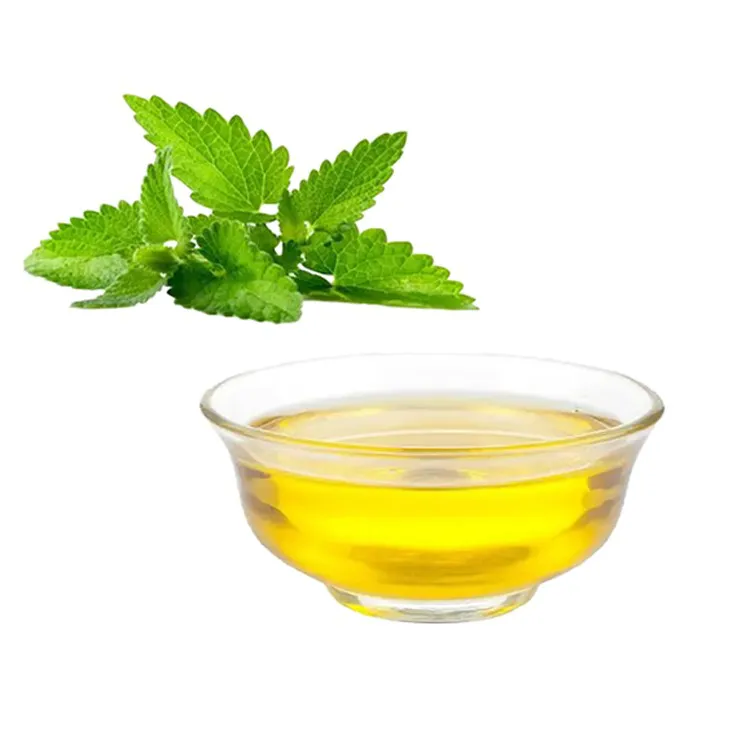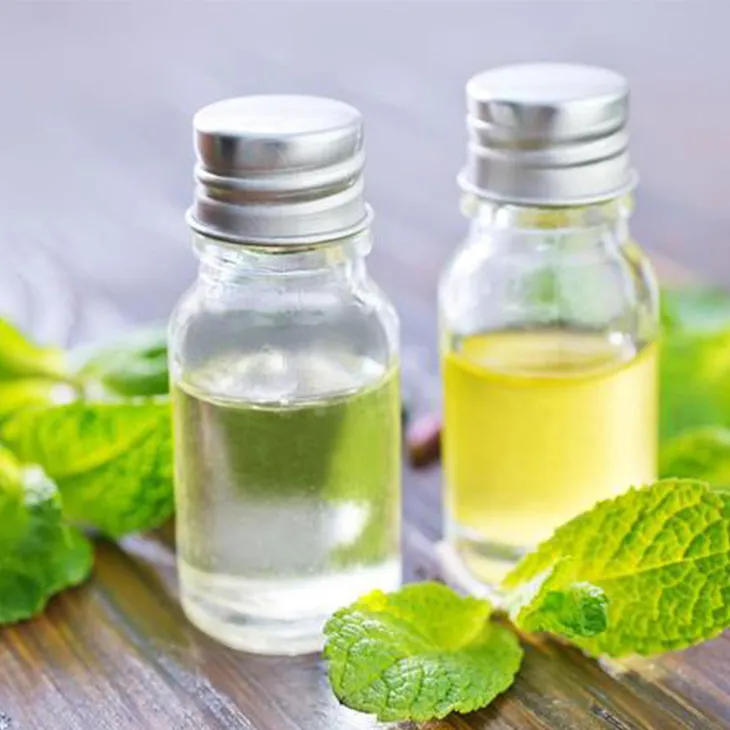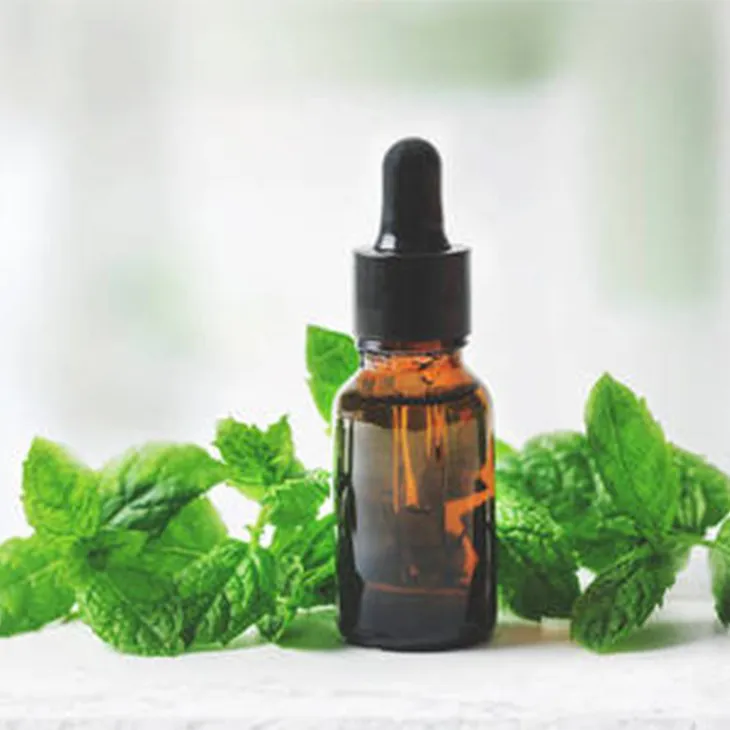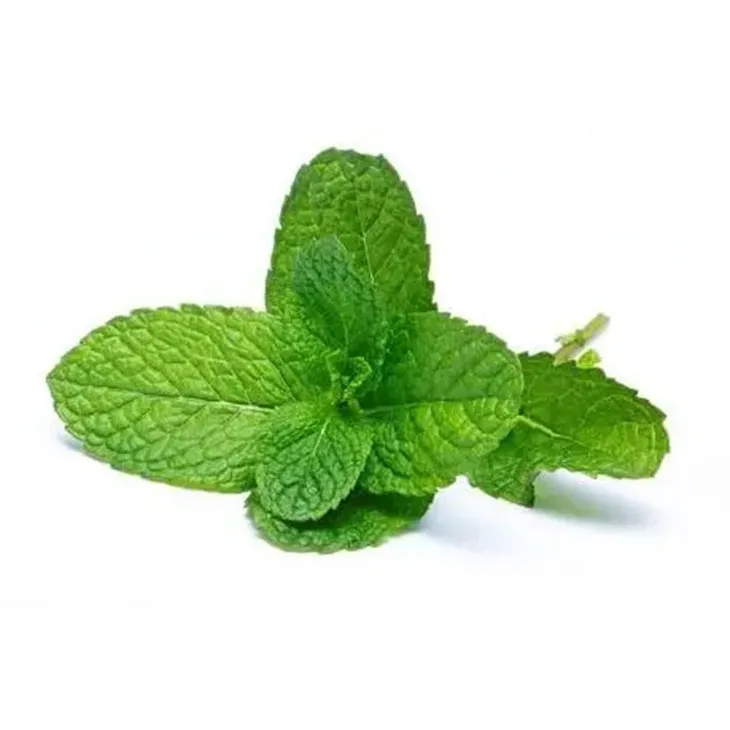- 0086-571-85302990
- sales@greenskybio.com
Peppermint Oil: Nature's Best - Kept Secret.
2024-11-12

Introduction
Peppermint Oil is truly a remarkable substance that has been somewhat of a "hidden gem" in the world of natural products. It is derived from the peppermint plant, a hybrid of watermint and spearmint, and has a long history of use in various cultures for its numerous beneficial properties.

Aromatherapy: Unlocking the Relaxation and Concentration Benefits
A. The Science Behind Aromatherapy
Aromatherapy is based on the principle that the inhalation of certain essential oils can have an impact on the brain's limbic system, which is involved in emotions, memory, and physiological functions. When it comes to Peppermint Oil, it contains key components such as menthol and menthone that are responsible for its characteristic aroma and therapeutic effects.
B. Relaxation with Peppermint OilMany people find that the scent of peppermint oil has a calming effect on the mind. It can help to reduce stress and anxiety levels. In a busy and hectic world, taking a few minutes to inhale the aroma of peppermint oil can be a simple yet effective way to unwind. For example, adding a few drops of peppermint oil to a diffuser in a quiet room and sitting quietly while inhaling the scent can promote a sense of relaxation.
C. Enhancing ConcentrationOn the other hand, peppermint oil is also known for its ability to enhance concentration. The refreshing aroma can stimulate the brain and improve mental clarity. Students and office workers alike can benefit from using peppermint oil during study or work sessions. A study has shown that the inhalation of peppermint oil can improve performance on tasks that require sustained attention.

Peppermint Oil in Agriculture: A Natural Pest Repellent
A. The Need for Natural Pest Repellents
In modern agriculture, there is a growing concern about the use of chemical pesticides. These pesticides can have negative impacts on the environment, including contaminating soil and water, and harming non - target organisms such as beneficial insects and wildlife. As a result, there is an increasing demand for natural alternatives, and peppermint oil has emerged as a promising option.
B. How Peppermint Oil Repels PestsPeppermint oil contains compounds that are unpleasant to many pests. For insects, the strong aroma of peppermint oil can disrupt their sense of smell, making it difficult for them to find food sources or mates. For example, it has been shown to be effective against ants, aphids, and mosquitoes. In the case of ants, the scent of peppermint oil can create a barrier that they will avoid crossing. Similarly, aphids are less likely to infest plants treated with peppermint oil.
C. Application in Agriculture
- Peppermint oil can be used in various forms in agriculture. One common method is to create a spray by diluting peppermint oil with water. This spray can then be applied directly to plants, taking care to cover both the upper and lower surfaces of the leaves.
- Another approach is to use peppermint oil - infused sachets or cotton balls placed around the garden or agricultural area. This can act as a passive deterrent, releasing the scent of peppermint oil slowly over time.
- It is important to note that while peppermint oil can be effective, it may need to be reapplied regularly, especially after rainfall or in windy conditions.

Quality Control in Peppermint Oil Production
A. Importance of Quality Control
The quality of peppermint oil is crucial as it directly affects its effectiveness in various applications. Poor - quality peppermint oil may not have the desired therapeutic or pest - repellent properties. Moreover, ensuring purity is essential to avoid any potential adverse reactions, especially when used in aromatherapy or on the skin.
B. Factors Affecting Quality
- The quality of the peppermint plant itself is a significant factor. Plants that are grown in optimal conditions, with the right amount of sunlight, water, and soil nutrients, are likely to produce higher - quality oil.
- The extraction method also plays a vital role. There are different methods of extracting peppermint oil, such as steam distillation and cold - pressing. Steam distillation is the most commonly used method as it helps to preserve the integrity of the oil's components.
- Storage conditions are another aspect to consider. Peppermint oil should be stored in a cool, dark place in airtight containers to prevent oxidation and degradation.
- Gas chromatography is a common technique used to analyze the composition of peppermint oil. This method can accurately identify the different components present in the oil and determine their relative amounts. It helps to ensure that the oil contains the appropriate levels of menthol, menthone, and other key constituents.
- Another test is the assessment of the oil's physical properties, such as its color, clarity, and odor. Any deviation from the normal characteristics may indicate a problem with the quality of the oil.
- Quality control also involves checking for contaminants, such as pesticides or heavy metals. These can enter the oil if the peppermint plants were grown in contaminated soil or if improper extraction or storage methods were used.

Conclusion
Peppermint oil is indeed nature's best - kept secret. Its potential in aromatherapy for relaxation and concentration, as well as its role in agriculture as a natural pest repellent, makes it a highly valuable product. However, to fully realize its benefits, strict quality control measures must be in place during its production. As more people become aware of the properties of peppermint oil, it is likely to gain even more popularity in the future, both in the fields of health and wellness and in sustainable agriculture.
FAQ:
What are the main benefits of peppermint oil in aromatherapy?
Peppermint oil in aromatherapy can enhance relaxation by reducing stress and anxiety levels. It also has the ability to improve concentration. The refreshing and invigorating scent of peppermint oil can help clear the mind, making it easier to focus on tasks at hand. It may also have a positive impact on mood, lifting the spirits of those who inhale its aroma.
How does peppermint oil act as a natural pest repellent in agriculture?
Peppermint oil contains certain compounds that pests find unpleasant. The strong smell of peppermint can deter a variety of insects and other pests from approaching plants. For example, it can be effective against aphids, ants, and some types of beetles. When applied in the right concentration in agricultural settings, it can protect crops without the need for synthetic pesticides, which is more environmentally friendly.
What are the key quality control measures in peppermint oil production?
One important quality control measure is the proper identification and sourcing of peppermint plants. Only high - quality peppermint plants should be used. During the extraction process, strict standards are applied to ensure that the oil is pure and free from contaminants. Testing for potency, such as the measurement of key active compounds like menthol, is also crucial. Additionally, proper storage conditions are maintained to preserve the quality of the peppermint oil.
Can peppermint oil be used directly on the skin?
Peppermint oil is very potent and should generally not be used directly on the skin without dilution. Undiluted peppermint oil can cause skin irritation, redness, or even burns in some cases. It is recommended to mix it with a carrier oil, such as coconut oil or jojoba oil, before applying it to the skin. However, even with dilution, a patch test should be done first to check for any allergic reactions.
How is peppermint oil extracted?
Peppermint oil is typically extracted through steam distillation. In this process, the peppermint plants are placed in a distillation apparatus. Steam is passed through the plants, which causes the essential oil to vaporize. The vapor is then condensed back into a liquid, and the resulting liquid contains the peppermint oil. This method helps to preserve the natural properties of the oil.
Related literature
- The Therapeutic Benefits of Peppermint Oil"
- "Peppermint Oil in Organic Farming: Pest Control and Beyond"
- "Quality Assurance in Essential Oil Production: The Case of Peppermint Oil"
- ▶ Hesperidin
- ▶ citrus bioflavonoids
- ▶ plant extract
- ▶ lycopene
- ▶ Diosmin
- ▶ Grape seed extract
- ▶ Sea buckthorn Juice Powder
- ▶ Beetroot powder
- ▶ Hops Extract
- ▶ Artichoke Extract
- ▶ Reishi mushroom extract
- ▶ Astaxanthin
- ▶ Green Tea Extract
- ▶ Curcumin Extract
- ▶ Horse Chestnut Extract
- ▶ Other Problems
- ▶ Boswellia Serrata Extract
- ▶ Resveratrol Extract
- ▶ Marigold Extract
- ▶ Grape Leaf Extract
- ▶ blog3
- ▶ blog4
- ▶ blog5
-
Organic Tongkat Ali extract powder factory.
2024-11-12
-
How to make powder with ashwagandha extract.
2024-11-12
-
Rosehip extract manufacturers from China.
2024-11-12
-
The best cat's claw extract in nature.
2024-11-12
-
Chinese Dandelion Leaf Extract Suppliers.
2024-11-12
-
White Peony Extract
2024-11-12
-
Motherwort Extract
2024-11-12
-
Coix Seed Extract
2024-11-12
-
Black Pepper Extract
2024-11-12
-
Wheat Germ Extract
2024-11-12
-
Grape Leaf Extract
2024-11-12
-
Hericium erinaceus extract powder
2024-11-12
-
Hawthorn Extract
2024-11-12
-
Chaste Berry Extract
2024-11-12
-
Boswellia Serrata Extract
2024-11-12





















